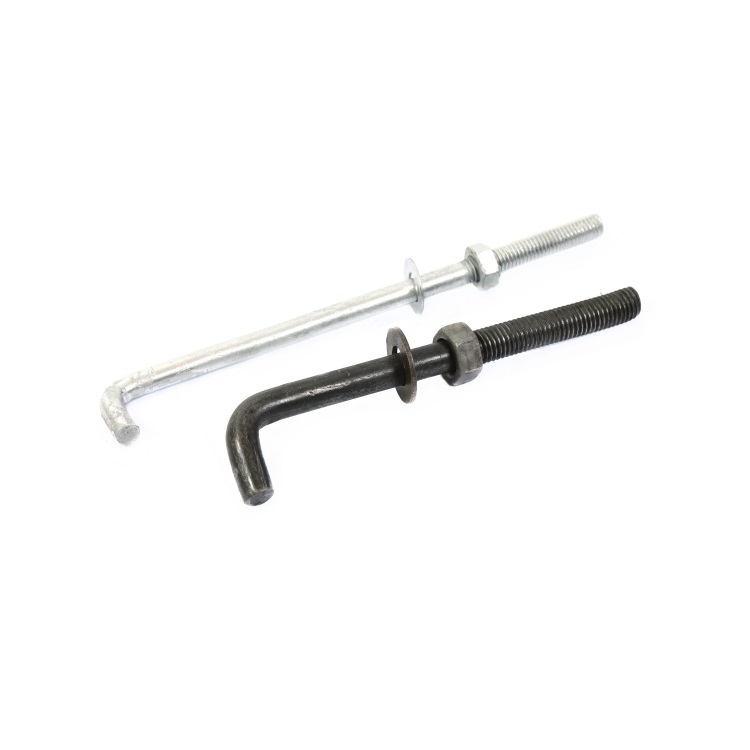construction anchor bolts
Understanding Construction Anchor Bolts Essential Components in Structural Integrity
In the realm of construction and civil engineering, the importance of anchor bolts cannot be overstated. These seemingly simple components play a critical role in ensuring the stability and durability of various structures, including buildings, bridges, and towers. Anchor bolts are used to attach structural elements to concrete foundations, securing the integrity of the entire construction. This article delves into the various types of anchor bolts, their applications, and the factors influencing their selection and installation.
Types of Anchor Bolts
There are several types of anchor bolts, each designed for specific applications and loading conditions. The most common types include
1. Screw Anchor Bolts These bolts resemble large screws and are used in applications where a strong, secure hold is required. They can be installed in both new and existing concrete structures.
2. L-Bolts Shaped like the letter L, these bolts are often embedded in concrete and used for securing wooden or metal framing, making them popular in deck and pole installations.
3. J-Bolts Similar to L-bolts, J-bolts also have a hooked end but are typically used for lighter load applications, such as securing small equipment to concrete slabs.
4. Expansion Bolts These bolts feature a mechanism that expands when the bolt is tightened, securing it within the concrete. Expansion bolts are commonly used in masonry work and for attaching fixtures to walls.
5. Chemical Anchors These involve the use of a resin or adhesive in conjunction with a bolt. When the resin cures, it provides a strong bond between the bolt and the concrete, making them suitable for high-load applications.
Applications in Construction
Anchor bolts serve a multitude of functions in construction, primarily focused on connecting and stabilizing various structural components. They are commonly found in
- Foundations Anchor bolts are essential for attaching structural frames and columns to concrete slabs. They ensure that the building remains anchored to its foundation even during extreme weather events, such as earthquakes or strong winds.
construction anchor bolts

- Bridges In bridge construction, anchor bolts are vital for securing steel beams and trusses to concrete abutments, ensuring the structural integrity and safety of the bridge.
- Towers and Masts Communication towers and radio masts require anchor bolts for stability
. These bolts are often designed to withstand strong lateral forces and vibrations.- Industrial Equipment In industrial settings, heavy machinery and equipment are frequently secured to floors using anchor bolts, preventing movement that could lead to accidents.
Selection and Installation Considerations
When selecting anchor bolts for a specific project, several factors must be considered
- Load Requirements The type and magnitude of the load that the bolt will bear will dictate the selected bolt size, material, and type.
- Environmental Conditions Factors such as corrosion resistance and exposure to chemicals should be taken into account, particularly in marine or industrial environments.
- Concrete Quality The compressive strength of the concrete will influence the performance of anchor bolts. Proper installation techniques must be employed to maximize their effectiveness.
- Installation Techniques Proper installation is crucial for the performance of anchor bolts. Engineers must adhere to relevant codes and standards to ensure that the bolts are installed at the correct depth, spacing, and orientation.
Conclusion
Anchor bolts, although small in size, are vital components in the construction industry. They provide critical support, ensuring the stability and safety of various structures. Understanding the different types of anchor bolts, their applications, and the factors influencing their selection and installation can greatly enhance the durability and longevity of any construction project. By prioritizing the proper use of anchor bolts, builders and engineers can contribute to safer, more resilient infrastructures.
-
The Durability and Versatility of Steel Wire
NewsJun.26,2025
-
The Best Iron Nails for Your Construction Projects
NewsJun.26,2025
-
Strengthen Your Projects with Durable Metal Stakes
NewsJun.26,2025
-
Get the Job Done Right with Duplex Nails
NewsJun.26,2025
-
Explore the Versatility and Strength of Metal Mesh
NewsJun.26,2025
-
Enhance Your Security with Razor Wire
NewsJun.26,2025














